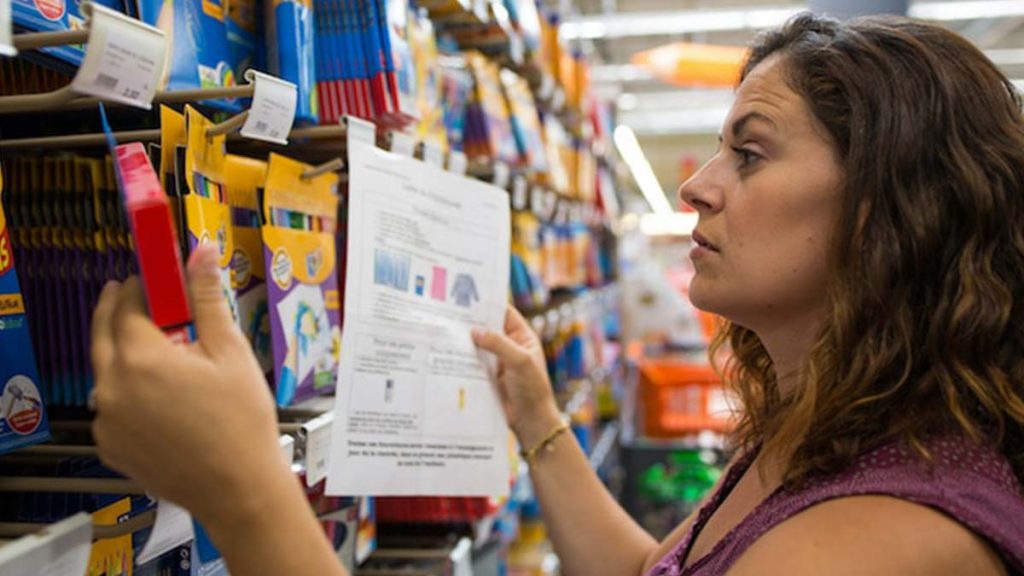Va llegando el momento de prepararse para el próximo ciclo escolar, así que te dejamos estos cuatro consejos que pueden ayudarte a hacer un plan para administrar mejor los recursos que invertirás en los materiales necesarios para el regreso a clases.
1. Reutiliza
Antes de que vayas corriendo a aprovechar las ofertas que hay durante esta temporada es muy bueno revisar qué materiales tenemos que todavía pueden utilizarse. Especialmente en el ciclo escolar que terminó, y fue totalmente desde casa, es posible que tengamos muchas cosas que permanecen en excelente estado. Además puedes intercambiar entre amigos, familiares o con los compañeros de clase de tus hijos, libros y materiales a los que se les puede dar un segundo uso y de esta forma cuidar el medio ambiente mientras cuidas tu bolsillo.
2. Investiga y compara precios
Una vez que ya sepas lo que sí será necesario comprar, es una buena idea checar con anticipación los precios de dichos materiales en distintas tiendas, puedes aprovechar cuando vayas a hacer tus compras normales al supermercado, lleva una libreta o una lista en tu celular en la que puedas anotar los precios. Otra opción es hacerlo en línea, aunque en ocasiones estos precios pueden variar a los de la tienda, tendrás una idea de cuáles tiendas manejan mejores precios en general.
3. Haz un presupuesto
Ahora que ya sabes lo que necesitas y tienes una idea de los costos de esos materiales, haz un presupuesto de lo que gastarás, puedes separar por categorías de material, por tienda o por cada niño. Así sabrás cuánto es lo que puedes gastar en cada rubro y será más sencillo que separes ese dinero de tus ingresos, si es necesario te ayudará a hacer ajustes a otros gastos que normalmente haces pero en esta temporada debes destinar esos recursos a las compras del regreso a clases.
4. Apégate al plan
Al ir de compras apégate al plan y al presupuesto que has hecho, no dejes que te domine la emoción o las ganas de comprar otras cosas que no son necesarias. Muchas veces pensamos que los pequeños gastos no se sienten, pero por lo general es en esas cosas pequeñas en las que a la larga terminamos gastando mucho más de lo necesario.
How to shop smart during back-to-school during back-to-school season
It’s time to prepare for the next school year, so here are four tips to help you plan to manage the resources better. You will invest in the necessary materials for back to school.
1. Reuse
Before you rush to take advantage of the available offers during this season, it is excellent to review what materials can still be used. Especially in the school year that ended, and it was totally from home, we may have many things that remain in excellent condition. You can also exchange among friends, family, or your children’s classmates books and materials that can be given a second use and take care of the environment while taking care of your pocket.
2. Research and compare prices
Once you know what you will need to buy, it is good to check in advance the prices of these materials in different stores. You can take advantage of this when you go to the supermarket to do your regular shopping, take a notebook or a list on your cell phone in which you can write down the prices. Another option is to do it online; although sometimes these prices may vary from those of the store, you will know which stores have better prices in general.
3. Make a budget
Now that you know what you need and have an idea of the costs of those materials, make a budget for what you will spend. You can separate by material categories, by store, or by each child. This way, you will know how much you can spend on each item, and it will be easier to separate that money from your income. If necessary, it will help you make adjustments to other expenses that you usually make, but you should allocate those resources to back-to-school shopping this season.
4. Stick to the plan
When you go shopping, stick to the plan and the budget you have made, do not let the excitement or the desire to buy other things that are not necessary dominate you. We often think that small expenses are not felt, but it is usually in those small things that we end up spending much more than necessary in the long run.

